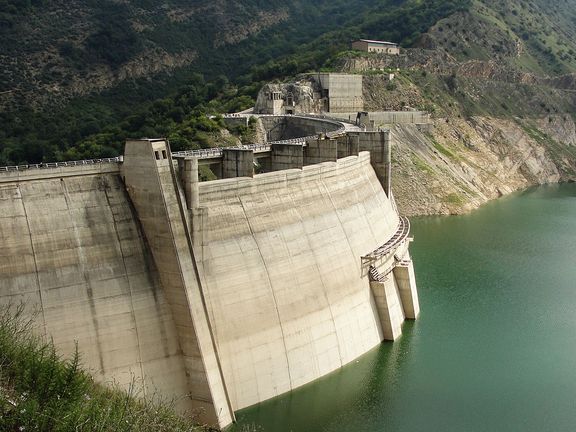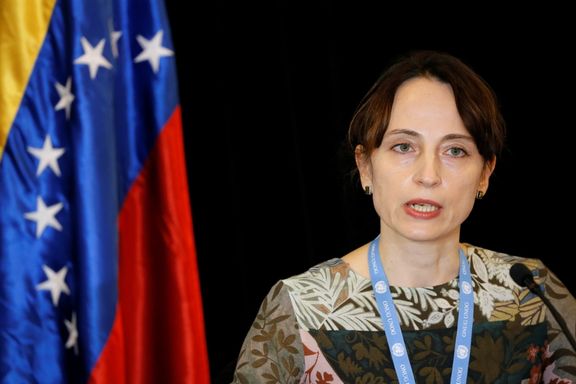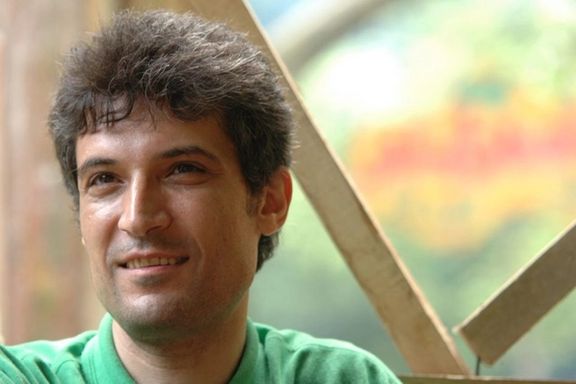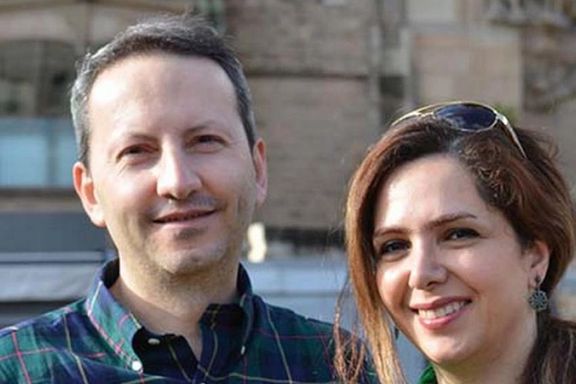Iran's Capital Faces Water Shortage As Less Water Flows Into Dams

Water inflow into Tehran dams has decreased by about 27 percent since the start of the wet season, in Iran which started in November.

Water inflow into Tehran dams has decreased by about 27 percent since the start of the wet season, in Iran which started in November.
Mohammad-Reza Bakhtiari, the managing director of Tehran province Water and Wastewater Company, said on Saturday that input of the five dams around the capital has decreased to over 620 million cubic meters, while the figure was about 855 million cubic meters in the same period last year.
He added that the current volume of water reserve in Amir Kabir, Latian, Lar, Taleghan and Mamlu dams is 97, 60, 67, 232 and 71 million cubic meters, respectively.
According to Bakhtiari, rainfall was also down 31 percent from the beginning of the wet season to 164.1 millimeters, down from 218.9 millimeters in the same period last year.
Head of Iran's Geological Survey and Mineral Explorations Organization, Alireza Shahidi, has recently said that the country is in a 30-year drought cycle, noting that the dry spell started about 10 to 20 years ago and now its effects are more observable.
In 2021, large-scale water protests took place in two important provinces, Khuzestan and Esfahan, with several people killed and hundreds injured by security forces.
As drought persists, more underground water is exploited for irrigation, depleting natural reservoirs formed during thousands of years. However, politicians and experts say that there are no consistent government plans to deal with the water crisis, which can result in mass migration of millions of people in the next ten years.

The man who had confessed to planning assassination on behalf of Iran’s Revolutionary Guards in an audio tape released last week, now claims he was coerced.
In a new video acquired by Iran International Saturday, a man who introduces himself as Mansour Rasouli says he was abducted and coerced to make false confessions. The man's appearance is very similar to a photo released by Israeli media and speaks with the same voice and accent as in his earlier audio recording.
It is possible that the denial video was recorded and released by Iranian intelligence.
The man in the video says he was abducted by a "team of gangsters" who took him to an unknown place. "I didn't know why I was abducted," he says. His abductors threatened to kill him and his family to coerce him to say he was planning to carry out terrorist operations for the Revolutionary Guards (IRGC) in Europe and that he had received $150,000 for the operations.
"They tear-gassed me, tied my hands, blindfolded me, and drew a sack over my head. They brutally forced me into a car and took me to an unknown place," he says and claims his abductors took his mobile phone and may release images from it but does not explain how the images could implicate him in any illegal activities.
However, Iran International will soon release another video from the same man where he confesses to the terror plot.
On April 30, Israeli media, including Channel 12, released an audio recording with the photo of a man introduced as Iranian national Mansour Rasouli, 52, who they claimed the Mossad had interrogated inside Iran. Israeli media did not provide a source for the audio file that they said Mossad operatives posing as Iranian secret service recorded at Rasouli's home in Iran.
The recording surfaced hours after Iran International's report of an alleged Iranian triple assassination plot. Iran International's diplomatic sources had said a member of the IRGC'S Qods Force had been detained in an unnamed European country for assassination plots in Germany, France and Turkey.
In the Israeli's media's audio recording, Rasouli said he was sent to Turkey by the Revolutionary Guards (IRGC) to establish an operational network to assassinate an Israeli diplomat in Istanbul, a Germany-based US general, and a journalist in France. The new denial video at least confirms that reports in Israeli media about agents getting a ‘confession’ from the man were true.
Citing Israeli officials, some Israeli media such as Walla news site have claimed that the incident took place a year ago and the man interrogated had connections to drug-smuggling networks.
Apparently duped by his interrogators that they were from one of Iran's many intelligence agencies, Rasouli said in the recording that accepting to carry out the operation was a mistake that he would never make again.
A statement from Israeli Prime Minister's Office said Monday the Mossad had "foiled" alleged IRGC plots to assassinate a US general in Germany as well as a journalist in France, and an Israeli diplomat in Turkey.
Tehran officials have not commented on the Israeli media's claims. However, in a commentary Monday, Nour News called the reports over the alleged plot "fabrication of the Zionists."
Nour News, a website affiliated to the secretary of Iran's Supreme National Security Council (SNSC), Ali Shamkhani, also accused the BBC's Persian channel of "running the show" and trying to "divert the attention of the public" from "Israeli crimes against Palestinians" and helping the Israeli government overshadow its domestic problems with "crude lies".

Iran’s currency, rial hit a four-month low on Saturday against the US dollar, as soaring bread prices created political and economic uncertainty in the country.
The US dollar rose to 285,000 rials in Tehran, the highest point since early January, when the currency was marginally recovering from previous lows on optimism over nuclear negotiations with the West. After talks in Vienna came to a standstill in mid-March, the currency began gradually losing its value again.
The rial has fallen almost ninefold since late 2017 when signs emerged that former US president Donald Trump intended to withdraw from the 2015 nuclear agreement, JCPOA, and impose economic sanctions on Iran.
Trump eventually pulled the United States out of the Obama-era agreement in May 2018 and imposed oil export and other sanctions that began to squeeze Iran’s oil-dependent economy. High double-digit inflation and a falling currency followed, leading to at least two years of a deep recession.
The falling currency makes everything else more expensive for people who earn depreciated rials. Key foodstuff, such as cooking oil, and 15 million tons of wheat are imported annually. In addition, animal feed is also imported and a falling currency makes meat and poultry more expensive. Most Iranians have stopped buying meat according to industry people in Iran.
This week the government finally acted on an earlier decision to stop a subsidy in the form of cheap dollars for imports of essential commodities, such as flour and animal feed. Immediately, cooking oil disappeared from supermarket shelves and flour prices increased fivefold, leading to a bread crisis.
The government’s handing of the price jump has been haphazard, claiming to be ready to provide cash assistance to citizens for buying bread but offering contradictory information on how the process would work. Pundits and citizens have reacted by saying that apparently the government failed to prepare for the eventuality.
There were reports on Friday of bread protests breaking out in the oil-rich Khuzestan province
President Ebrahim Raisi and his oil minister Javad Owji have been insisting that Iran’s illicit oil exports and revenues have risen in the past year, with evidence that Iran has been exporting anywhere between 750,000 to one million barrels per day. However, the economic impact of higher oil revenues is nowhere to be seen.
The key to lifting US sanctions and getting a reprieve form economic pressure is reaching an agreement with the United States over the nuclear issue, but talks in Vienna have stopped since mid-March.
As bread prices shot up almost fivefold in two days, economy minister Ehsan Khandouzi promised Saturday that the government will start a system of cash assistance to buy bread, but his statement was vague as to who what income groups would be eligible to receive the cash subsidy.
Meanwile, Hamshahri newspaper reported that the government is also planning to hike the price of cooking oil and gasoline, to begin reducing decades of subsidies paid by oil export income.
A gasoline price hike in November 2019 led to nationwide protests in which security forces shot dead at least 1,500 people and arrested 8,000.
Prices for all these commodities are very low in Iran compared to other countries, but so are wages. An Iranian worker earns an average of $150 per month and when one flatbread costs one dollar, the family can only afford to buy 3-4 breads a day, and nothing else.

By allowing a UN Special Rapporteur on unilateral sanctions to visit the country, Iran seeks to deflect attention from its human rights violations, critics say.
Alena Douhan, the UN Special Rapporteur on the negative impact of the unilateral coercive measures on the enjoyment of human rights, will arrive in Iran Saturday. Douhan, a professor of international law at the Belarussian State University is an expert in international law, sanctions, and human rights law.
During her eleven-day visit, Douhan will hold meetings with various Iranian officials as well as officials of various UN agencies in Tehran, non-governmental organizations, representatives of business and civil society organizations, and academics.
"We denounce the government's instrumentalization of the system of UN human rights monitors in a cynical attempt to deflect attention from its well-documented record of human rights violations," eleven human rights organizations said in a joint statement Friday in reference to the visit.
The signatories of the statement including Abdorrahman Boroumand Center for Human Rights in Iran, All Human Rights for All in Iran, and Article 19, criticized the UN for sending Douhan to Iran although in the past seventeen years the Islamic Republic has denied access to all UN special rapporteurs for human rights.
Iran has not allowed visits to any of the fourteen UN human rights experts who have made requests to monitor the situation of human rights in Iran, including to the special rapporteurs appointed by the UN Human Rights Council.
"The mandate on unilateral coercive measures is unique in that it calls on the mandate-holder to assess primarily – if not exclusively – the responsibility of sanction imposing states for rights violations in the jurisdiction of sanctioned states," the rights organizations' statement said, adding that Iranian authorities are exploiting the visit by the only expert whose mandate is to look at external actors' liability, to blunt scrutiny of their own record of non-cooperation with the UN human rights system.
"By inviting the UN Special Rapporteur, Iran’s ruling clerics, which have been condemned 68 times by the United Nations for brutal and systematic human rights abuses, seek to undermine international sanctions and dodge blame for their incompetency and shortcomings," a commentary in Iran Wire website April 25 said about Iran's alleged agenda.
The role of this rapporteur was created at the UN Human Rights Council by the adoption of a resolution proposed by Iran on behalf of Non-Aligned Movement in 2014.
The resolution stresses that unilateral sanctions, meaning those not approved by the UN Security Council, are contrary to international laws and highlights that on long-term, these measures may result in social problems and raise humanitarian concerns in the targeted states.
Douhan has a track-record of only condemning sanctions imposed on non-democratic countries while virtually remaining silent on violations by countries like Iran, Syria and her native Belarus. The argument that only Security Council sanctions are legal ignore the fact that countries such as Russia and China can easily veto any resolution meant to punish an authoritarian government for massive rights violations.
Since her appointment in March 2020, Douhan has served as the UN rapporteur on US unilateral sanctions against Venezuela (August 2020) and Saudi Arabia's sanctions against Qatar (November 2020). In December 2020, Douhan said US sanctions against Syria's government may inhibit rebuilding of Syria’s civilian infrastructure destroyed by the conflict, and could “violate the human rights of the Syrian people.”

Two leading Shiite clerics in Iran have urged Iranian pilgrims to respect Saudi law during ‘the Hajj,’ the annual pilgrimage to Mecca due July 7-12.
Grand Ayatollahs Naser Makarem Shirazi and Jafar Sobhani made their call during meetings Friday with Abdolfattah Navvab (Abdul Fattah Nawab), representative for Hajj and pilgrimage affairs of Supreme Leader Ali Khamenei.
Makarem Shirazi said Iranian pilgrims should not behave in ways that could provoke the sensitivities of the Saudis, and that given Iran’s strained relations with Saudi Arabia, Hajj was a chance “to create optimism and dispel pessimism.”
The statements by the two clerics loyal to Khamenei could be a public signal to Saudi Arabia, amid attempts to improve ties between Tehran and Riyadh.
Makarem noted that Hajj was “indirectly” a political issue. Iran and Saudi Arabia broke off formal diplomatic relations in 2016 and the Hajj has sometimes over centuries revealed tensions between Shia Iranian pilgrims and the Saudis, who follow the Wahhabi tradition in Sunni Islam. In 1987 over 400 Iranians died in clashes with Saudi security forces.
Sobhani suggested that Iranian officials should advise pilgrims to “respect the laws of Saudi Arabia and to refrain from doing what is not right.".After two years of pared-down pilgrimage due to Covid-19 pandemic restrictions, this year Saudi authorities will permit 1 million Muslims from inside and outside the country to participate. About 40,000 Iranians are set to attend.

A jailed Iranian civil activist, Farhad Meysami, went on hunger strike Saturday to protest the possible execution of a Swedish Iranian doctor accused of Spying.
In a note published Friday on a Telegram channel run by his supporters, Meysami said he will not end his hunger strike, which he said he would begin Saturday morning, unless authorities stop the execution of Swedish-Iranian national Ahmadreza Djalali (Jalali). Meysami, who is a doctor, said he will refuse all food and only take a little water and a medication which if not taken will cause quick bleeding in his digestive system.
Quoting unnamed "informed sources," semi-official media in Iran reported this week that the 51-year-old Djalali's death sentence was impending.
This is not the first time Iran has threatened to execute Djalali. In November 2020, Djalali told his family he was being sent to solitary confinement in preparation for his execution which the authorities eventually did not carried out, without offering any explanation.
The Iranian state television at the time aired a video of Djalali confessing to spying for Israel but he subsequently released an audio message from prison saying he had been coerced into making the confession. The father of two has always denied any wrongdoing.

Djalali's wife, Vida Mehrannia, told Iran International at the time that he was being used as pawn by Iran in its relations with Europe. Mehrannia on Friday told Radio Farda, that this time authorities have not informed Djalali, his family, and his lawyer of their intention to carry out the death sentence.
Meysami, a doctor and teacher who has been serving a five-year sentence for his anti-hijab activities, said in his message that he had met Djalali at Tehran's Evin prison over three years ago. "He had been on hunger strike in protest to repeated threats of his execution and the effects of which on his body and soul were clearly visible," he wrote.
"Imagine subjecting a human being to this repeatedly. Not once, not twice… Is there any torture worse than this?" Meysami said about repeated threats of execution made against Djalali.
"I don't want to just oppose Dr Djalali's execution, I want to draw attention to something much more important, to draw attention to the fact that they send a man to his death many times and bring him back," he wrote. "Regular and intentional torture like this is definitely crime against humanity."
Sweden's Foreign Minister Ann Linde in a tweet Wednesday expressed concern over Djalali.
“We’re aware of the egregious case of arbitrary detention of Swedish-Iranian doctor Ahmadreza Djalali by Iranian authorities. We echo concerns from UN experts that Djalali’s case is ‘truly horrific,’ and urge his release,” a US State Department spokesperson said in response to a query by Iran International Friday.
Earlier this week the Swedish foreign ministry confirmed that Iran has recently arrested a Swedish tourist.
Tehran's relations with Stockholm have escalated further following Swedish prosecutors asking a sentence of life imprisonment for Hamid Nouri, a former Iranian judiciary official, for crimes against humanity committed during the prison purges of 1988 in Iran.
Calling Nouri's arrest and trial "unlawful and unfair", Secretary of Iran’s High Council for Human Rights Kazem Gharibabadi on Monday accused Sweden of violating Nouri's human rights.